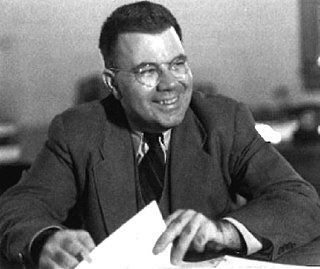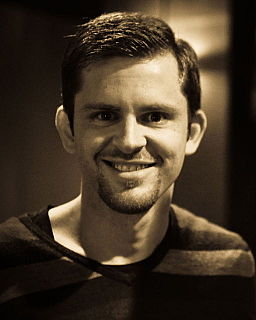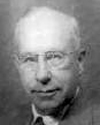A Quote by Edmund Pellegrino
Measurement has too often been the leitmotif of many investigations rather than the experimental examination of hypotheses. Mounds of data are collected, which are statistically decorous and methodologically unimpeachable, but conclusions are often trivial and rarely useful in decision making. This results from an overly rigorous control of an insignificant variable and a widespread deficiency in the framing of pertinent questions. Investigators seem to have settled for what is measurable instead of measuring what they would really like to know.
Quote Topics
Been
Collected
Conclusions
Control
Data
Decision
Decision Making
Deficiency
Examination
Experimental
Framing
Hypotheses
Insignificant
Instead
Investigations
Investigators
Know
Like
Making
Many
Measurable
Measurement
Measuring
Often
Overly
Pertinent
Pertinent Questions
Questions
Rarely
Rather
Really
Results
Rigorous
Seem
Settled
Than
Too
Trivial
Useful
Variable
Which
Widespread
Would
Related Quotes
If physics is too difficult for the physicists, the nonphysicist may wonder whether he should try at all to grasp its complexities and ambiguities. It is undeniably an effort, but probably one worth making, for the basic questions are important and the new experimental results are often fascinating. And if the layman runs into serious perplexities, he can be consoled with the thought that the points which baffle him are more than likely the ones for which the professionals have not found satisfactory answers.
Given any rule, however "fundamental" or "necessary" for science, there are always circumstances when it is advisable not only to ignore the rule, but to adopt its opposite. For example, there are circumstances when it is advisable to introduce, elaborate and defend ad hoc hypotheses, or hypotheses which contradict well-established and generally accepted experimental results, or hypotheses whose content is smaller than the content of the existing and empirically adequate alternative, or self-inconsistent hypotheses, and so on.
Personally, I’ve gotten so that I now use a kind of two-track analysis. First, what are the factors that really govern the interests involved, rationally considered? And second, what are the subconscious influences where the brain at a subconscious level is automatically conclusions in various ways — which, by and large, are useful — but which often malfunction? One approach is rationality… And the other is to evaluate the psychological factors that cause subconscious conclusions — many of which are wrong.
I think everything can be painted because painting can change reality; but everything cannot be photographed and the photographer often comes home empty-handed, with images which (often) have a documentary interest, but which rarely go further than that. One has to be completely available, very tenacious and admit that many subjects won't give any results... and a miracle sometimes happens, without warning.
I like women who haven’t lived with too many men. I don’t expect virginity but I simply prefer women who haven’t been rubbed raw by experience. There is a quality about women who choose men sparingly; it appears in their walk in their eyes in their laughter and in their gentle hearts. Women who have had too many men seem to choose the next one out of revenge rather than with feeling. When you play the field selfishly everything works against you: one can’t insist on love or demand affection. You’re finally left with whatever you have been willing to give which often is: nothing.
The hypotheses which we accept ought to explain phenomena which we have observed. But they ought to do more than this; our hypotheses ought to foretell phenomena which have not yet been observed; ... because if the rule prevails, it includes all cases; and will determine them all, if we can only calculate its real consequences. Hence it will predict the results of new combinations, as well as explain the appearances which have occurred in old ones. And that it does this with certainty and correctness, is one mode in which the hypothesis is to be verified as right and useful.
It is often by a trivial, even an anecdotal decision, that we direct our activities into a certain channel, and thus determine which of the potential expressions of our individuality become manifest. Usually we know nothing of the ultimate orientation or of the outlet toward which we travel, and the stream sweeps us to a formula of life from which there is no returning. Every decision is like a murder, and our march forward is over the stillborn bodies of all our possible selves that will never be.

































